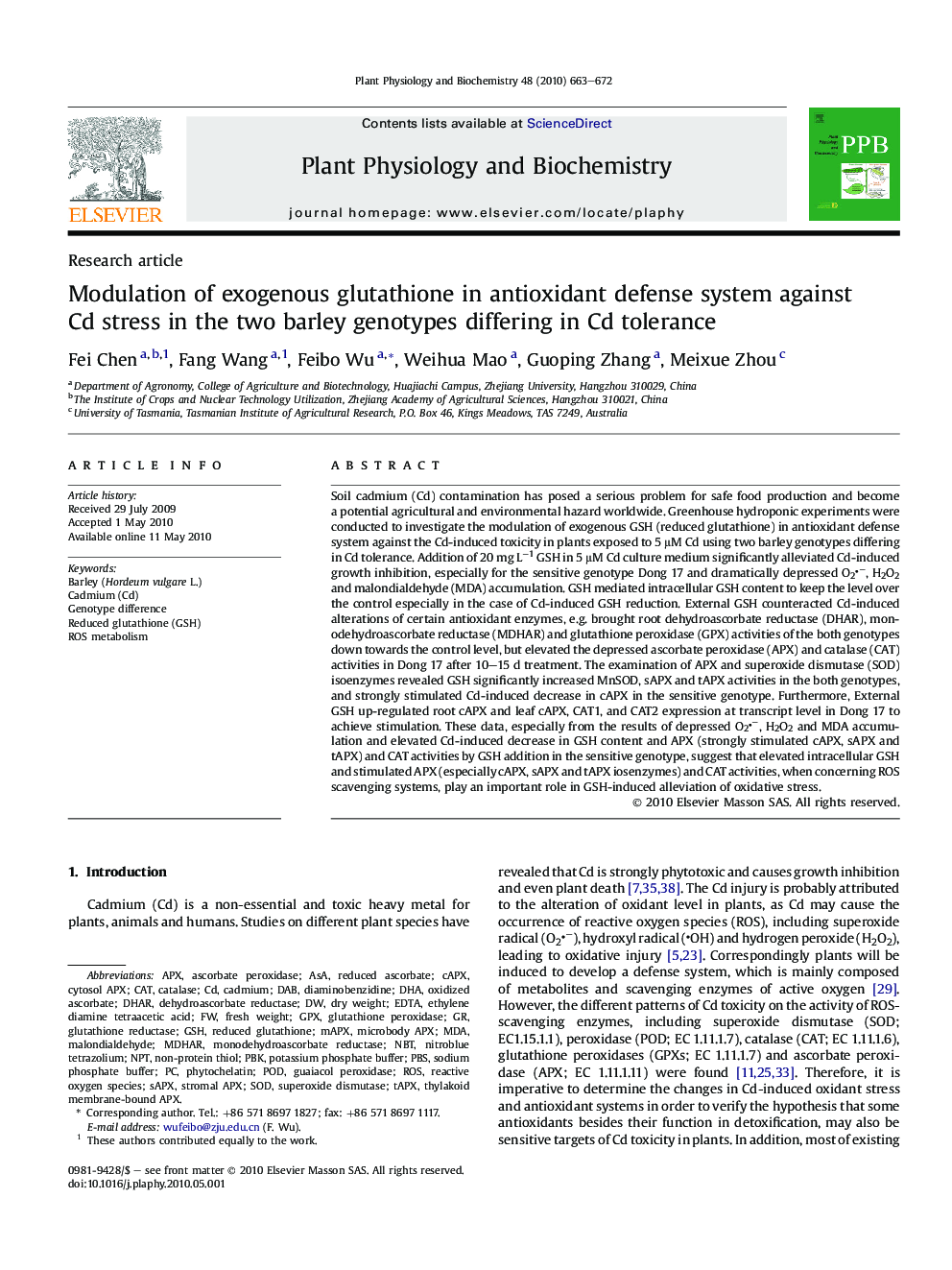| Article ID | Journal | Published Year | Pages | File Type |
|---|---|---|---|---|
| 2015326 | Plant Physiology and Biochemistry | 2010 | 10 Pages |
Soil cadmium (Cd) contamination has posed a serious problem for safe food production and become a potential agricultural and environmental hazard worldwide. Greenhouse hydroponic experiments were conducted to investigate the modulation of exogenous GSH (reduced glutathione) in antioxidant defense system against the Cd-induced toxicity in plants exposed to 5 μM Cd using two barley genotypes differing in Cd tolerance. Addition of 20 mg L−1 GSH in 5 μM Cd culture medium significantly alleviated Cd-induced growth inhibition, especially for the sensitive genotype Dong 17 and dramatically depressed O2−, H2O2 and malondialdehyde (MDA) accumulation. GSH mediated intracellular GSH content to keep the level over the control especially in the case of Cd-induced GSH reduction. External GSH counteracted Cd-induced alterations of certain antioxidant enzymes, e.g. brought root dehydroascorbate reductase (DHAR), monodehydroascorbate reductase (MDHAR) and glutathione peroxidase (GPX) activities of the both genotypes down towards the control level, but elevated the depressed ascorbate peroxidase (APX) and catalase (CAT) activities in Dong 17 after 10–15 d treatment. The examination of APX and superoxide dismutase (SOD) isoenzymes revealed GSH significantly increased MnSOD, sAPX and tAPX activities in the both genotypes, and strongly stimulated Cd-induced decrease in cAPX in the sensitive genotype. Furthermore, External GSH up-regulated root cAPX and leaf cAPX, CAT1, and CAT2 expression at transcript level in Dong 17 to achieve stimulation. These data, especially from the results of depressed O2−, H2O2 and MDA accumulation and elevated Cd-induced decrease in GSH content and APX (strongly stimulated cAPX, sAPX and tAPX) and CAT activities by GSH addition in the sensitive genotype, suggest that elevated intracellular GSH and stimulated APX (especially cAPX, sAPX and tAPX iosenzymes) and CAT activities, when concerning ROS scavenging systems, play an important role in GSH-induced alleviation of oxidative stress.
